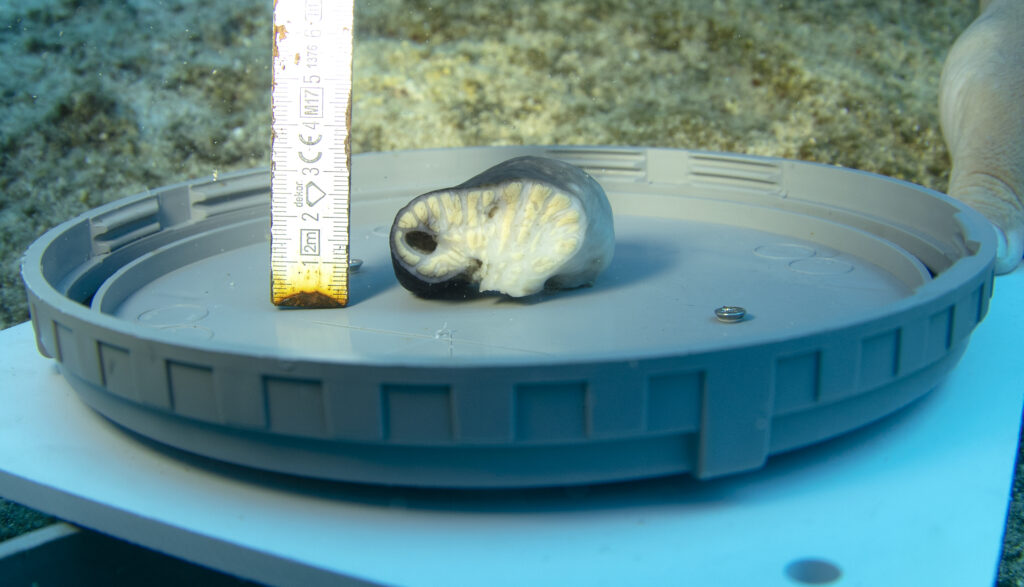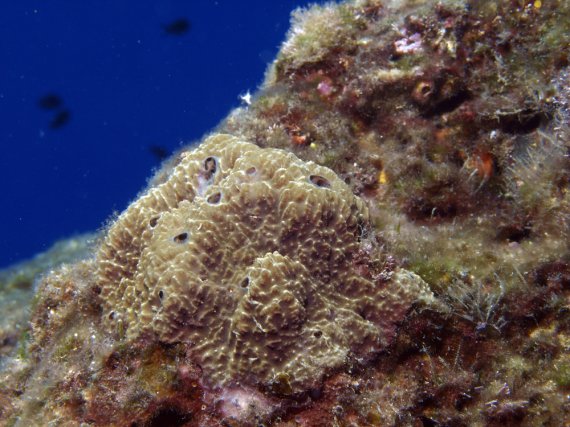The interest in the marine culture of sponges in the last two decades has mainly been because they provide certain biomaterials. For example, the sponge Chondrosia reniformis produces collagen, which can be used to promote tissue regeneration in people after surgery. Gökalp: ‘Currently, collagen is collected from mammals, but there are ethical objections, so it would be great to have another source.’ Also the sponge is a natural water filter that could be used to clean polluted water.

Gökalp and his colleagues Ronald Osinga and Tim Wijgerde investigated what the best methods are to culture the sponges. They did their experiments in coastal waters off the Bodrum Peninsula in Southwest Turkey where there are a lot of fish farms, which has caused the water quality to decrease. The sponges can be cultured near the fish cages, Gökalp explains. ‘They can be harvested for their collagen content, which has different medical applications, and in return they also clean up the water.’ The results were published as a cover story in the Marine Drugs Journal.
Superglue
In the study Gokalp and his colleagues tested different methods to culture the collagen-rich sponge near floating fish cages. To culture sponges a piece of sponge is cut and explanted to a PVC plate under water, and a new sponge grows from that piece. One problem with Chondrosia reniformis is that this species is highly mobile and literally walks away from its culture position. The researchers found that the best way to attach the sponges is by using superglue. Gökalp ‘We first tried chicken wire, but that created problems for observing growth rates and tended to also catch sediment, which promotes the growth of epibionts such as algae and barnacles, which compete for space with the sponges.’

Better in polluted water
Furthermore, the researchers found that the growth and survival rates of sponges that were cultured near the fish farm were almost twice as high as in the pristine water. Gökalp: ‘This is probably related to the fact that there is more food available near the fish farms, and perhaps because of the lower light levels in murky water, which the sponges prefer.’
The results show that combining sponge and fish culture could benefit the growth of the sponges and provide a means of more sustainable fish farming. Gökalp is currently investigating how good the sponges are at cleaning the water under different conditions, not just near fish farms but also in other polluted areas like waste streams originating from city discharge pipes.

 Photo: Shutterstock
Photo: Shutterstock